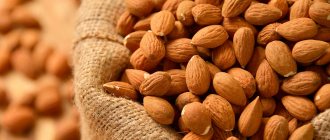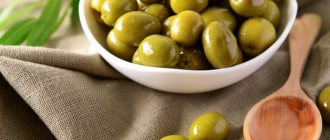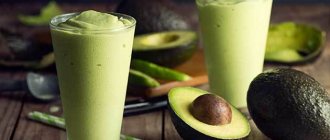What you can do during pregnancy
Expectant mothers carefully plan their menu. And even the consumption of vegetables is sometimes agreed upon with doctors. What should pregnant women know about zucchini? How are they useful and do they pose any threats? Let's figure it out.
The benefits and harms of zucchini during pregnancy
Zucchini is a relative of pumpkin and is native to Mexico. Zucchini is 95% water and contains only 4.5% carbohydrates.
Its pulp contains vitamins B1 and B2, B3 and B6, A and PP, C and H. The vegetable contains many mineral salts. They support metabolism in the body. These are calcium and potassium salts, phosphorus and magnesium. The vegetable contains zinc and lithium, molybdenum and titanium.
Zucchini is an assistant in removing excess fluid from the body. That is why it is useful to introduce it into the menu for pregnant women in the third trimester, when their legs swell and excess weight has already been gained. After all, 23 calories per 100 grams of vegetable allow zucchini to be included in dietary foods.
A significant amount of carotene and vitamin C in zucchini helps normalize water balance. The vegetable is recommended for women with cholecystitis and pyelonephritis, urolithiasis.
In addition, zucchini will be useful in the menu of those expectant mothers who have high blood pressure, because the diuretic effect of vegetables helps to reduce it.
The high content of potassium and magnesium in this vegetable is very useful for the development of the baby’s cardiac system, and iron contributes to the formation of his hematopoietic system.
It should be noted that for pregnant women there is no significant difference in which type of zucchini to consume. They are all almost identical in composition. But many women prefer zucchini to their taste. The most useful and richest in the above substances are young fruits 15-25 centimeters long, which should be cooked with the peel. Young zucchini is recommended for pregnant women who have problems with the gastrointestinal tract, as well as those suffering from diabetes.
Despite the richness of the composition, zucchini on the menu needs more satisfying partners, for example, potatoes, eggplants, and legumes.
Gooseberries during pregnancy Pumpkin during pregnancy Potatoes during pregnancy Beets during pregnancy Can pregnant women eat sushi and rolls
Zucchini contains very little protein, so eating zucchini alone in order to maintain weight is not recommended for a pregnant woman. You need to combine zucchini with stewed fish and lean boiled meat when it comes to weight control.
Nutritionists recommend stewing zucchini for dinner for pregnant women whose weight needs correction. Their combination with carrots, onions, and vegetable oil is an excellent option for a dietary evening meal.
You can also use the seeds of mature zucchini, which are dried in the oven or fried in vegetable oil. Zucchini seeds are higher in calories than the pulp, so it is not recommended to consume them if pregnant women are overweight.
Possible uses of zucchini during pregnancy
In addition to the main purpose of zucchini - a component of the menu - these vegetables are also suitable for skin care.
- Pregnancy Calendar
- Pregnancy calculators
- What to name the child?
Zucchini masks have an excellent moisturizing effect. They tone the skin and improve metabolic processes in it. It should be noted that zucchini has bleaching properties similar to cucumber. It can be used by women who suffer from the appearance of pigmentation on their face during pregnancy. Zucchini pulp masks will help cope with changes in skin condition. You can grate the zucchini and apply the lightly squeezed pulp in a thick layer on your face. Another option for using zucchini for whitening is to soak gauze in zucchini juice. It needs to be soaked in strained juice, to which add a couple of drops of hydrogen peroxide or a spoonful of lemon juice and apply to the face.
If there are no problems with the appearance of pigmentation on the skin of the expectant mother, then you can use zucchini pulp simply as a moisturizer for the skin. Adding honey to it will only give the skin silkiness and a healthy glow. In addition, the zucchini-honey mask helps smooth out fine wrinkles and refreshes the complexion.
For oily skin of a pregnant woman, zucchini should be combined with oatmeal in the form of a mask. Equal proportions of zucchini pulp and flour help remove oily shine and pore contamination.
As for the use of zucchini for hair, its juice, due to its rich composition, perfectly strengthens hair. Many pregnant women experience hair loss and a deterioration in their general condition. Zucchini juice masks will help cope with the problem.
So, zucchini is a friend for the expectant mother’s stomach, her face, and her hair.
Vegetable favorites in the diet of expectant mothers
Sweet potato
This tuber is not only rich in vitamin A, but also potassium and fiber. Potassium prepares the mother for lactation, and fiber helps fight constipation, which often occurs during pregnancy.
Sweet potatoes (or sweet potatoes) are also an excellent source of vitamin B6, which stimulates the production of red blood cells in the fetus and prevents nausea in the mother.
Pepper
Citrus fruits are considered an excellent source of vitamin C, but vegetables in general are just as good. For example, paprika: one piece contains 209 mg - this is three times more than in one orange!
By eating pepper in salads and main dishes, you supply the body with the right amount of vitamin C, which, in addition to strengthening the immune system, helps with the full absorption of iron.
Tomatoes
This is one of the most beloved vegetables by our compatriots, which can be added to salads or eaten just like that. The fruits contain a lot of vitamin C and iron, as well as antioxidants that protect cells from damage.
Another important source of vitamin C for the expectant mother is radishes during pregnancy. This vegetable can and should also be eaten while expecting a baby.
Beet
The vegetable helps cleanse the blood and protects the child from possible congenital malformations. Beets are rich not only in folic acid, but also in vitamin C and iron. They help eliminate toxins and support liver function. In turn, this means a well-functioning digestive system, which means a healthy pregnancy.
Read about the benefits of carrots during pregnancy in a separate article.
Zucchini for pregnant women: beneficial properties and contraindications
The tastes of pregnant women are often very diverse and sometimes surprising. But still, pregnant women need a carefully selected and calibrated diet that could provide a sufficient amount of nutrients to the unborn child. One of the most important products in this case will be a variety of vegetables. What should you know about zucchini, can you eat them during pregnancy and what benefits can they bring? More on this later.
How are they useful for expectant mothers?
At first glance, such a watery vegetable does not have any particularly useful substances that pregnant women might need. But this is not at all true, because it contains a lot of useful minerals and vitamins, even though it consists of 90% water.
- The vegetable contains a lot of vitamin A, which affects the growth of the internal organs of the unborn child.
- B vitamins, which zucchini is rich in, are involved in the formation of the nervous system. Vitamin B9 (folic acid) is very important for pregnant women, and this vegetable contains a lot of it.
- The well-known vitamin C, which not only strengthens the immune system of the mother, but also the baby, also promotes the absorption and distribution of the rest of the group of useful substances.
- Zucchini contains a lot of calcium, which reduces the risk of miscarriages and cramps during pregnancy, and also has beneficial properties such as strengthening the skeletal system of the fetus.
- Potassium and sodium help remove excess water from the body and maintain the necessary water balance. Magnesium strengthens the little heart.
- The vegetable also contains a lot of iron - this is the prevention of anemia, blood diseases and problems with its composition.
Processing methods
To get all the benefits from vegetables, you need to eat them correctly.
Fresh
The benefits and nutrient content of the vegetables in question always imply a fresh product, so preference should be given to raw vegetables. Maximum variety can be obtained from vegetable salads dressed with olive oil, yogurt or low-fat sour cream.
Stewed
By stewing vegetables with the addition of a small amount of water, a number of nutrients are retained. In addition, stewed vegetables are good for women with intestinal problems. The digestibility of vegetables prepared in this way is quite high.
Boiled
When cooked, microelements are released into the water, and the vegetable itself becomes “empty”; only dietary fiber is retained. To obtain maximum benefits, cooked vegetables should be consumed with the vegetable broth in which they were cooked.
Steamed
information Vegetables cooked in steamers and multicookers practically do not lose their value.
Fried
It is better to avoid fried foods during pregnancy, as well as during breastfeeding, since such heat treatment saturates vegetables with carcinogenic substances formed when oil is destroyed under the influence of high temperatures. Carcinogens adversely affect the organisms of mother and baby.
Frozen
You can buy vegetables in stores all year round, but you need to be especially careful here, because vegetables grown out of season are subject to chemical treatment to ensure their growth and ripening. In winter and early spring, it is best to give preference to seasonally prepared frozen vegetables, which are an excellent alternative. Deep freezing preserves everything nutritious and healthy, which is very important for mother and baby.
Can pregnant women eat zucchini?
Zucchini has gained significant popularity recently. They are increasingly used in cooking, simple dishes and real masterpieces are invented. Is it possible to eat the product during pregnancy?
The benefits of zucchini and their vitamin composition
Zucchini is an easily digestible dietary product rich in vitamins and microelements. It is easily accessible all year round, easy and versatile to prepare and has a pleasant taste. In addition, it is a low allergenic product.
Compound
North America is considered the homeland of zucchini. Since ancient times, this vegetable has been the main ingredient of national dishes among Indian tribes, along with pumpkin and corn. In the 16th century, zucchini was brought to Europe. Currently, the vegetable is one of the most popular crops in household plots in Russia.
Fresh zucchini contains the following elements:
The calorie content of fresh zucchini is only 24 kcal. The product is considered dietary and is allowed for use from the earliest stages of pregnancy. Zucchini will also be beneficial after childbirth as a safe, hypoallergenic product recommended for feeding nursing mothers.
Zucchini during pregnancy: enemies or friends?
What is pregnancy? This is, first of all, taking care of your baby. Taking care of him while still in the womb means not only dressing warmly and watching your routine, but also planning your diet.
The expectant mother must think about a large number of vitamins. True, you can’t overdo it with them either. For example, eating more grapes or corn than normal can cause harm. Well, what about zucchini during pregnancy? They appear on store shelves first and disappear later than everyone else. What are their benefits, can they adversely affect the pregnancy and health of the baby?
The benefits of zucchini and their vitamin composition
You are an expectant mother and you are interested in the question: “Can I eat zucchini during pregnancy?” This vegetable is a direct relative of pumpkin. Imported from Mexico. More than 90% consists of water. But it contains almost 5% carbohydrates.
Let's move on to the vitamin composition of zucchini. The pulp and the amount of useful substances in it can be called a godsend for every pregnant woman:
- the presence of vitamin A helps to form the organs and all systems of the baby (for information on how a child should normally develop during pregnancy, read the article Development of a child in the womb >>>);
- almost the entire group of vitamins B. B9 alone is folic acid, which is so necessary for the normal condition of a pregnant woman and her baby. Others, such as B1, B2, B3, B6, B7, affect the full development of the baby’s central nervous system;
- to strengthen and enhance the immune system, zucchini contains the important vitamin C. It improves the absorption of all vital minerals and vitamins consumed by a woman during pregnancy. In addition, it helps the body fight viruses. Read about what to do if you do get sick in the article Colds during pregnancy>>>;
- The second most important substance for the human body is called Calcium. It is its lack in the second trimester of pregnancy that is felt most of all. There is a sufficient amount of it in the zucchini. Thus, bone tissue, teeth and nail plates are strengthened. Calcium also helps reduce the risk of premature birth and miscarriage;
- the presence of potassium and sodium normalizes water balance and removes excess fluid;
- There is magnesium to strengthen the heart muscle, and iron improves the composition of blood vessels. It is also recommended for iron deficiency anemia;
- Zucchini pulp contains lithium, zinc, copper, manganese, sulfur and phosphorus. And also, a sufficient amount of proteins and fatty acids.
What else is zucchini good for?
- The benefit of zucchini during pregnancy is that this vegetable is an excellent dietary product. It stabilizes weight and maintains health. By introducing it into your diet, you don’t have to worry about extra pounds, which are not recommended to gain during pregnancy;
- The positive qualities of this vegetable include the ability to remove waste and toxins from the body, and also serve as a natural means for removing fluid (diuretic), it helps soften stool;
- Zucchini is a multicomplex that relieves inflammation, cleanses the blood and serves as a general tonic;
- It is also called a natural cleanser of the human body from harmful salts and cholesterol.
Is there any harm from zucchini?
Thanks to its vitamin cocktail, zucchini is completely harmless for expectant mothers. The only condition that should be adhered to is not to eat only zucchini, but to supplement it with other food products. A good addition would be stewed fish or potatoes. An excellent combination with dietary steamed meat or vegetable stew made from zucchini.
Zucchini during pregnancy is a definite benefit, but it can also cause harm if consumed fried. Many mothers do not like stewed vegetables, so they try to fry them until golden brown. If, of course, you really want it, then you can’t deny yourself this (especially since there will be much less cholesterol), but regularly eating fried zucchini is strictly prohibited.
Zucchini: how to choose the right one?
- When choosing a vegetable, pay attention to freshness. The fresher the zucchini, the more nutrients it contains;
- As for the variety, there is no significant difference. Whichever variety you like best, use that;
- Pay special attention to the size: from 15 cm to a maximum of 25. The older the vegetable, the fewer vitamins it contains.
If, with the onset of pregnancy, you are tormented by constipation and the gastrointestinal tract is bothered, then young zucchini with the peel is recommended for consumption. By the way, it is the skin that is rich in vitamins. Therefore, do not peel young zucchini.
Methods of use
Stew with the addition of a small amount of sunflower oil is a good solution to many health problems during pregnancy. The dish can also be eaten as a side dish.
Important! Do not confuse the stew with squash caviar; store-bought caviar is considered especially harmful. It contains a large amount of overcooked butter, flour and other harmful substances (synthetic additives and preservatives).
Why vegetables?
Vegetables are an important element of the daily menu during pregnancy. These are natural products needed to maintain health, which is subject to difficult tests.
Experts recommend eating five servings of vegetables throughout the day. One serving can be considered, for example, a bowl of soup or salad. It is important that this category of food is present in all meals.
Vegetables are wonderful “suppliers” of fiber and pectin. These substances help intestinal function, eliminate constipation, which is so common in expectant mothers, and remove toxic metabolic products.
Vegetables can resist acidification of the body and heartburn. They contain potassium, an element that helps remove excess water and relieves swelling. Among other things, they supply easily digestible carbohydrates and vegetable protein.
These gifts of nature are best eaten raw, and those that require heat treatment are best steamed.
Zucchini during pregnancy
Zucchini first appeared on the European table in the middle of the 18th century. Since then, people have repeatedly wondered what the benefits of this vegetable are. Is it possible to eat zucchini during pregnancy? Read the article.
Useful properties of zucchini
The chemical composition of zucchini allows it to be considered one of the most valuable products for residents of temperate climates. The following vitamins and microelements were found in the structure of the vegetable:
- Vitamin A. Retinol is recognized as a strong natural antioxidant. It is especially important in the early stages of gestation, when the internal organs of the fetus are forming - the heart, lungs, and digestive tract. Vitamin A protects growing cells from the destructive effects of free radicals and promotes their proper differentiation. Retinol is also useful for the expectant mother. Vitamin A strengthens hair and nails, and also has a nonspecific immunostimulating effect.
- B vitamins. Particular attention is paid to folic acid. Vitamin B9 is involved in the development of the fetal nervous system. A lack of folic acid leads to the formation of severe defects and threatens spontaneous miscarriage. Since the need for the vitamin increases from the first days of fetal development, zucchini will benefit women who are just planning a pregnancy. Vegetables also contain vitamins B1, B2, B3, B6 and B7. They participate in key metabolic processes and ensure a successful pregnancy.
- Vitamin C. A natural immunomodulator activates the production of interferon, enhances the immune response, and reduces the risk of developing infectious diseases. Ascorbic acid is also needed for normal metabolism of cholesterol and fatty acids. It also affects the condition of the skin - it increases collagen synthesis and makes it elastic.
- Vitamin E. Tocopherol supports the production of sex hormones, including progesterone. It is a natural antioxidant and antihypoxic agent - it protects growing fetal cells from destruction and prevents the development of hypoxia. Participates in selenium metabolism and controls the formation of nucleic acids - DNA and RNA. Under the influence of tocopherol, collagen is synthesized in the skin, contractile proteins in the muscles, specific placental membrane proteins and liver enzymes. It is an effective immunomodulator.
- Calcium. Strengthens bone and muscle tissue, affects the condition of tooth enamel - including in the fetus. Participates in the work of the heart muscle, affects the conduction of impulses through nerve cells, and ensures the uninterrupted synthesis of certain hormones and blood clotting factors.
- Phosphorus. Part of tooth enamel and bone tissue. With a lack of this element, bone pathology in the fetus develops.
- Sodium. Participates in water-electrolyte metabolism. Affects the synthesis and activation of certain enzymes.
- Potassium. Normalizes water and electrolyte balance, participates in blood clotting.
The calorie content of zucchini is low, which makes it a dietary product. 100 g of fresh vegetables contains only 26 kcal. The low level of carbohydrates allows you to consume zucchini if you are overweight and have diabetes.
Zucchini is rich in dietary fiber, which is necessary for the normal functioning of the digestive tract. They facilitate the digestion and movement of food, affect the production of enzymes, stimulate motor skills and increase appetite.
Video recipe for the occasion
:
Who needs to eat zucchini?
Zucchini will be beneficial for the following conditions:
- Toxicosis . Zucchini stimulates the appetite, but at the same time remains a light dietary dish. A properly prepared vegetable does not irritate the mucous membrane of the digestive tract, so it will be useful for nausea and vomiting in early pregnancy.
- Constipation . Zucchini stimulates intestinal motility and enzyme synthesis, accelerates the movement of the food bolus and normalizes stool.
- Edema syndrome . Zucchini has a diuretic effect. They accelerate the removal of fluid from the body and relieve swelling.
- Arterial hypertension . The diuretic effect of zucchini reduces the load on the heart and normalizes blood pressure.
- Excess body weight . Zucchini is a filling but low-calorie product. They will benefit women who are on a diet during pregnancy.
Harm of zucchini
There are practically no contraindications to eating zucchini. The product is well absorbed and does not cause discomfort. It is not recommended to eat zucchini only under the following conditions:
- Intestinal diseases with diarrhea and flatulence. Zucchini increases intestinal motility and aggravates the condition.
- Gastritis and gastric ulcer in the acute stage. It is not recommended to eat raw and canned zucchini - they increase the production of hydrochloric acid and worsen the condition.
- Individual intolerance. If, after eating zucchini, skin itching and rashes appear, or bowel movements are disrupted, you should change your diet.
You should eat zucchini with caution if you have kidney disease (pyelonephritis in the acute stage, glomerulonephritis, nephrotic syndrome, renal failure).
Cooking method
Zucchini is usually used to make vegetable stew . Stewed vegetables are beneficial for pregnant women. They do not irritate the mucous membrane of the digestive tract and facilitate the digestion of heavier foods - for example, meat. But you should avoid fried zucchini. Vegetables fried until golden brown provoke the production of gastric juice, lead to exacerbation of peptic ulcers, gastritis and colitis, and aggravate the course of toxicosis in the early stages of gestation.
Fresh zucchini can be baked . Baked vegetables retain maximum beneficial properties and have a mild taste. If desired, you can add other vegetables to the casserole - potatoes, carrots, tomatoes, onions.
Pregnant women can eat pickled zucchini, but with caution . It is worth abstaining in case of severe toxicosis, edema syndrome, or high blood pressure. Pickled zucchini retains water in the body, provokes thirst and raises blood pressure.
Pregnant women will benefit from zucchini juice . It improves digestion, relieves swelling, and gives strength. But you should not drink zucchini juice on an empty stomach - it is dangerous for the stomach. It is better to drink the drink half an hour after the main meal.
It is better to prepare dishes from young, medium-sized zucchini – from 15 to 20 cm long. They have thin skin and are rich in vitamins and microelements. But it is important to remember: zucchini contains little protein, so it is not suitable as a main dish. It is better to combine them with other vegetables, fish or meat.
Green is the color of hope and folic acid
Green vegetables deserve special mention. They are a very good source of vitamins A, E, K, C, B, and are rich in iron, potassium, magnesium, and phosphorus. In other words, they contain almost all the vitamins and minerals that pregnant women need. By the way, the color of nature’s gifts says a lot about the components supplied to the body.
Green vegetables contain large amounts of folic acid. When a woman is expecting a child, the need for this substance increases by almost half. Folic acid prevents damage to the so-called neural tube in a child developing in the womb, takes part in the preservation of genetic material, in the transfer of hereditary characteristics to new generations of cells, regulates their division, and has a positive effect on the weight and height of newborns.
This important substance can be found in Brussels sprouts, spinach, lettuce, parsley, asparagus, peas, beans and beans, zucchini, etc.
A few words about individual representatives of the group of green vegetables.
Broccoli
Broccoli should be included in your diet to get the double benefit of not only folic acid, but also calcium. However, that's not all. This cruciferous plant also contains fiber, antioxidants, iron and other nutrients that make it a supervegetable.
Green pea
Green peas are a storehouse of protein and vitamin K, which helps maintain healthy bones. A sufficient amount of protein helps to cope with the feeling of fatigue - a frequent accompaniment of an “interesting situation”.
Leafy vegetables
Leafy green vegetables are considered by many to be the best foods to eat during pregnancy. Buy, or better yet, grow spinach and salads of different varieties and actively include them in your diet. They are rich in folic acid, calcium and other important nutrients such as magnesium, potassium, dietary fiber and iron. These substances protect the fetus from various birth defects, such as spina bifida.
In what form is it best to eat, what can be cooked and what can be combined with?
It is best to eat zucchini fresh. This way, the expectant mother’s body will receive the largest amount of vitamins.
However, if a pregnant woman has problems with too much stomach acidity, gastritis or an ulcer, it is difficult to remove urine from the body - you can eat vegetables only after they have been cooked. Therefore, during pregnancy it is best to eat stewed zucchini
- they do not lose their beneficial properties and are much easier to perceive by the body. They can also be marinated, baked, stuffed with a variety of fillings, and grilled.
You can combine zucchini with almost any other vegetable.
. It is customary to eat them together with different types of meat, including dietary meat, fish, poultry and even produce. Its taste comes out very well when cooked with potatoes. Some people combine this vegetable with Indian chutney seasoning and use it as an addition to salads, soups and even pancakes. And the simplest thing you can prepare is fried zucchini, which is often served as a side dish, but during pregnancy you need to be very careful with it.
Where and how to store fresh
Fresh zucchini can be stored for no longer than 3 weeks.
.
Their skin is thin and soft, which is why they need to be eaten as quickly as possible. It is advisable to store vegetables in the refrigerator in bags with holes - this way they can get enough air and stay fresh longer. Zucchini can also be stored in cold, dark rooms, such as cellars, but only if the air humidity there is no more than 85%. Longer storage is indicated only for those vegetables that have undergone the full ripening process and have a fairly thick, dense skin. The best storage temperature will be +4 °C
, no more.










